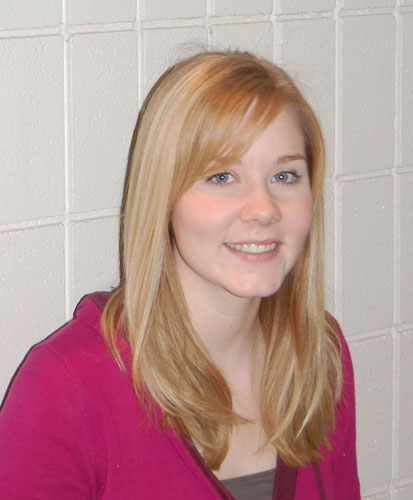
by Julie-Anne Johnston
A new pilot program implemented by the federal government is giving 25 students at the University of Regina the chance to be officially certified in French, their second language.
“They don’t learn just for a job. It’s another culture, another way to work,” said Lorraine Laliberté, one of the coordinators for the program “Acting for the Future” universities training project at the U of R’s French Institute.
The University of Regina has been chosen among 11 universities in Canada to participate in the pilot project. At the end of the program, students will receive the federal government’s certification at whatever level of bilingualism they attain.
The universities participating in the program had the option of having their students train entirely online with no outside instruction, or with outside help. Practical application is crucial to the learning process.
The 24-month program requires 5-10 hours of study each week, as well as one hour a week of French oral practice with other Francophones.
Students will be invited to the French Institute’s cultural events, a chance to meet new people and converse in French. Students will have a chance to “participate, interact, and learn with other francophones,” said Timothy Labelle, another coordinator for the program.
For Carla Ardell, one of the 25 students chosen to participate, her interest in bilingualism started with family trip to Niger, a French-speaking country.
When you speak another language, “you have how many more people in the world that you can communicate with,” she said. Ardell also found herself picking up some Hausa, one of Niger’s indigenous languages.
The federal government rates ‘A’ as the most basic level of French, ‘B’ as intermediate and ‘C’ as the highest level of bilingualism.
Ardell is currently taking full-time classes, and hopes to be accepted into the university’s bachelor of Francophone studies, and intends to challenge for a ‘C’ rating with the federal government when she has completed the bachelor, in conjunction with the federal language training program.
In a province where the majority of the population is Anglophone, it is difficult to see a need for growth in bilingualism. Yet, “there are signs culturally and politically that there’s a will for this to continue,” said Labelle.
As with many other industries, a large number of employees will be reaching retirement age at the same time. Labelle says the federal government hopes to increase the amount of bilinguals by about 5000 in the next five to ten years.
The program hopes to avoid the government’s current method of bilingual training, pulling employees from work for extra training and pay when they could be doing their jobs.
“The federal government is trying to increase bilingual employees. It’s hard to pull them out for 10 months training,” said Laliberté. It costs money to remove employees from their positions to have them re-certified, or leave their jobs to improve their certification.
As for Ardell, obtaining a higher certification with the federal government is still important. “It’s challenging, but I find it worthwhile.”

